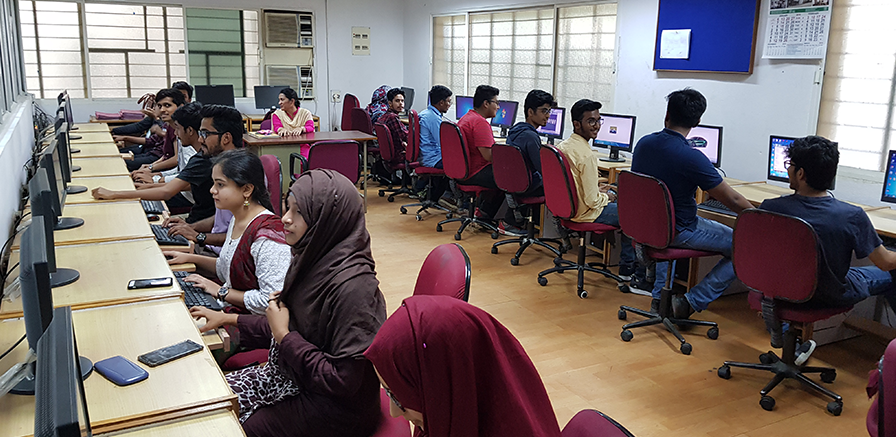About Course
The BE Information Technology Graduates are one of the cornerstones in the digital world's giant architecture that enables the businesses, industries and individuals in leveraging the solutions and benefits offered by IT in their day today transactions. IT graduates exhibit strong analytical abilities in solving problems faced by the global market and making digital solutions by developing software and applications. The IT Engineers take lead role in various phases of software development such as Requirements Collection, Design, Development, Testing and Maintenance of the Software Applications.
The curriculum in four years of BE IT course comprises courses which are mandatory for the IT Graduates to contribute to the global requirements of digital revolution in businesses. The syllabus lays emphasis on foundational courses such as mathematical abilities, analytical abilities, mathematical foundations of Information Technology, and Programming for Problem Solving. The necessary Software Engineering skills are imparted thru various programming languages, Computer Science core subjects such as Databases, Operating Systems, Computer Networks, Data Structures & Algorithms, and their practical laboratory courses, emerging technologies such as Machine Learning, Artificial Intelligence, Data Analytics, etc. In order to address the societal needs and develop the interpersonal skills, work ethics, and familiarity with Indian culture and traditions, several courses have been recommended by AICTE such as Effective Technical Communication, Accounting and Finance, Gender Sensitisation, Essence of Indian Tradition and Knowledge, etc. In order to nurture the problem solving skills, team work and managerial skills, students need to undertake several mini-projects and a major project for the overall development as an IT Engineer.
Vision
Fostering a bright technological future by enabling the students to function as leaders in software industry and serve as means of transformation to empower society through ITeS.
Mission
To create an ambience of academic excellence through state of art infrastructure and learner-centric pedagogy leading to employability in multi-disciplinary fields.
